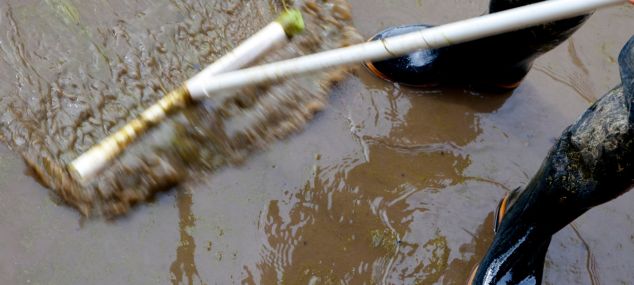
North Coast Population and Public Health is encouraging people to stay safe around floodwaters and take precautions with food and drinking water following the adverse weather that has impacted the Northern Rivers and Mid North Coast.
Drinking water supplies can be affected by storms and floods. If a 'boil water' alert has been issued in your area, observe it strictly to prevent illness. If you are not sure about the quality of drinking water, contact your water supplier or local council.
Regional Director North Coast Population and Public Health Dr Valerie Delpech reminded people to avoid contact with floodwater as much as possible to reduce the risks of injury, sickness or infection and treat all floodwater as contaminated.
“We’re urging residents to take precautions if they come into contact with floodwater, as it can contain hazardous substances, including raw sewage, chemicals and other contaminants which can easily make you sick or lead to infections such as leptospirosis,” Dr Delpech said.
“If you are involved in clean-up activities, please remember to wear safety equipment including boots, gloves and eye protection and wash your hands thoroughly afterwards.”
Please clean and apply a dressing to any scratches or cuts to reduce chances of infection – even minor wounds are entry points for bacteria.
“Dispose of all food, including frozen food, that has come into contact with flood waters. Some canned food may be kept but if the can is dented or damaged it should be thrown away. If in doubt, throw it out,” Dr Delpech said.
“If power is cut for more than four hours, food in fridges will be unsafe to eat. Freezers will generally not defrost, and the food kept inside should not spoil for at least 24 hours if the door has been kept shut."
If you rely on tank water, please be aware of the potential for contamination from polluted flood water and have your water tested and treated if necessary. If in doubt, use alternative clean water until it is confirmed safe to use.
Where houses have been flooded, please look out for dangers including contaminated medicines, hidden animals and damaged structures.
To prevent mould, it is important to dry out your home as quickly as possible. Members of the community should also have a
licensed professional inspect flood-affected electrical and gas equipment before use.
For more advice on staying healthy during and after floods and storms, including printable fact sheets, visit the NSW Health website.
If you need emergency assistance in a flood or storm, call the State Emergency Service (SES) on 132 500. For a medical, police or fire emergency call Triple Zero (000).
If you need medical advice and care, call Healthdirect for free, 24/7 on 1800 022 222 and speak to a registered nurse. They can also connect you or your children with virtual health care services, so you can receive care from wherever you are.
If you need crisis support, please call Lifeline Australia at any time on 13 11 14. Children and young people can call Kids Helpline at any time on 1800 55 1800 or chat online at kidshelpline.com.au
For non-crisis support, please call Beyondblue on 1300 22 46 36. There’s also a range of online resources to support you and your loved ones. Please visit Beyondblue and Lifeline online. Young people should visit heaspace.org.au, Kids Helpline or ReachOut.com